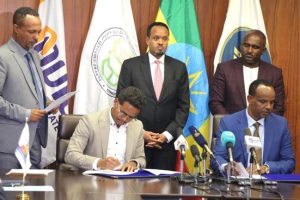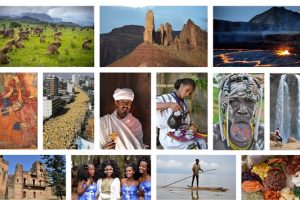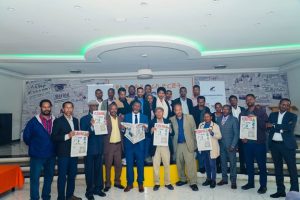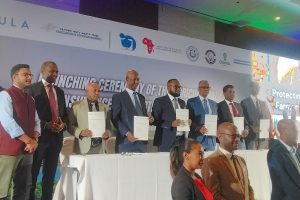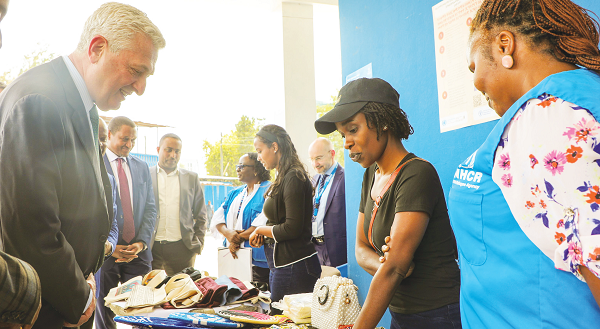
ADDIS ABABA – UN High Commissioner for Refugees Filippo Grandi has praised Ethiopia for its generosity in providing essential support to refugees.
Grandi commended the country’s generosity during a high-level discussion forum on refugee inclusion held yesterday, aimed at fostering sustainable economic development. The event was organized by Ethiopia’s Refugee and Returnees Service (RRS) in collaboration with UNHCR and the UN Refugee Agency.
At the forum, the High Commissioner emphasized that refugees represent a shared international responsibility. He praised Ethiopia for its welcoming approach, including opening borders, allocating land, and facilitating refugees’ access and inclusion.
Grandi urged the international community to increase financial contributions and provide technical expertise to support these efforts.
Success, he noted, depends on inclusive policies and collaboration among states, donor partners, and the private sector to foster sustainable development for refugees. “We continue to support Ethiopia’s effort,” Grandi expressed.
In her opening remarks, Finance State Minister Semereta Sewasew stated that the country has shifted its focus from merely humanitarian responses to sustainable, inclusive solutions that integrate refugees into national systems, particularly in health, education, and livelihoods, while ensuring host communities are not overlooked.
Ethiopia’s policy now emphasizes integrating refugees into national systems, including civil registries and social programs, granting them access to essential public services that strengthen their legal identity.
Economic inclusion efforts have been intensified, with refugees participating in labor market programs and safety net initiatives. Semereta added that many refugees have leveraged these opportunities to start small businesses, enhancing their self-reliance and contributing to local economies.
However, decreasing humanitarian funding poses challenges in critical sectors such as education and health, she said, calling for urgent collaborative action to address these gaps. She emphasized the need to invest in local infrastructure and services for both refugees and host communities.
RRS Director General Teyiba Hasen said Ethiopia remains committed to a transformative, inclusive approach to protect over 1.1 million refugees and support more than 16 million host community members.
She noted that Ethiopia is actively seeking partnerships with both existing and new development and humanitarian organizations to fulfill its 2023 Global Refugee Forum commitments.
Teyiba further stated that refugees are protected under national laws addressing violence against women and children, safeguarding their rights and dignity.
She also highlighted that the country is strengthening the voices of refugees and host communities, whose lived experiences and aspirations are vital in shaping effective, long-term responses.
Teyiba noted Ethiopia promotes voluntary repatriation, resettlement, and alternative pathways for refugees, focusing on sustainable solutions that provide safe and dignified opportunities.
She emphasized the need for concrete collaboration through technical assistance and financial support for refugee communities.
By assessing progress, identifying gaps, and strengthening partnerships, the government aims to enhance refugee inclusion while bolstering the resilience of host communities, according to the Director.
BY FIKADU BELAY
THE ETHIOPIAN HERALD SATURDAY 14 JUNE 2025

